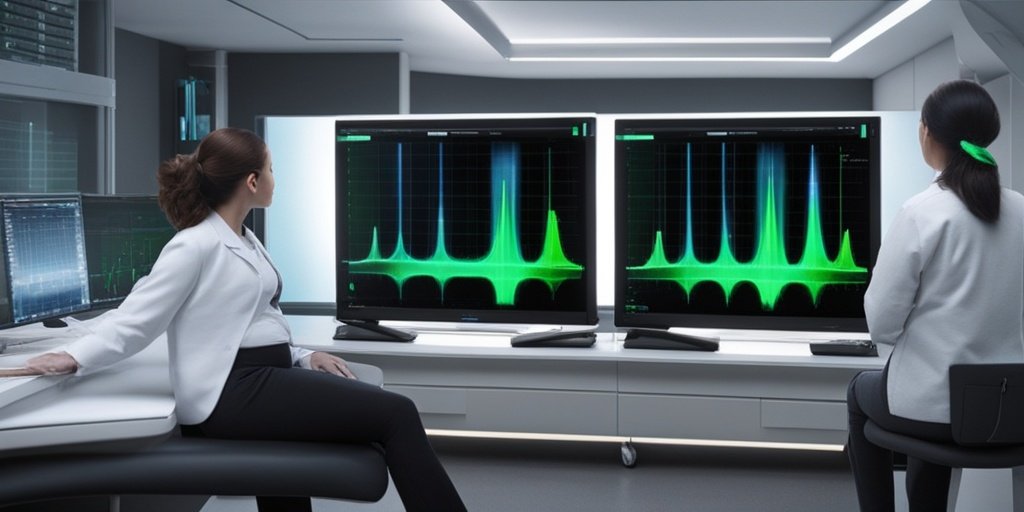⚡ Quick Summary
This study investigates the role of novel inflammatory markers and Doppler parameters in predicting late-onset fetal growth restriction (FGR) using a machine-learning approach. The findings reveal that the Random Forest algorithm achieved an impressive accuracy of 77% in predicting FGR, highlighting the potential of integrating these markers for improved diagnostic accuracy.
🔍 Key Details
- 📊 Dataset: 240 patients, divided equally between late-onset FGR and control groups
- 🧩 Features used: Inflammatory markers (SII, SIRI, NPAR) and Doppler parameters
- ⚙️ Technology: Machine learning, specifically the Random Forest algorithm
- 🏆 Performance: Random Forest: Accuracy 77%, AUC 0.851
🔑 Key Takeaways
- 📊 Late-onset FGR is a critical condition affecting fetal development.
- 💡 Novel inflammatory markers like NPAR showed significant correlation with FGR.
- 🤖 Machine learning enhances predictive accuracy in clinical settings.
- 🏆 Random Forest algorithm outperformed other models in this study.
- 🌍 Study conducted at the Department of Perinatology, Ministry of Health Etlik City Hospital, Ankara.
- 🆔 ClinicalTrials.gov Identifier: NCT06372938.
- 📈 Future research is needed to validate findings with larger cohorts.

📚 Background
Fetal growth restriction (FGR) is a significant concern in obstetrics, particularly in its late-onset form, which can lead to adverse neonatal outcomes. Traditional diagnostic methods often rely on ultrasound measurements, but integrating inflammatory markers could enhance predictive capabilities. This study aims to explore this integration through advanced machine-learning techniques.
🗒️ Study
Conducted between 2023 and 2024, this retrospective case-control study involved 240 patients between 32 and 37 weeks of gestation. The researchers focused on three novel inflammatory markers: the systemic immune-inflammation index (SII), systemic inflammatory response index (SIRI), and neutrophil-percentage-to-albumin ratio (NPAR). These markers were analyzed alongside Doppler parameters of umbilical and uterine arteries to develop a predictive model for late-onset FGR.
📈 Results
The study found that the Random Forest algorithm effectively integrated inflammatory markers with Doppler parameters, achieving an accuracy of 77% and an AUC of 0.851 for predicting FGR. Notably, NPAR demonstrated a strong correlation with the presence of FGR, while SII and SIRI showed lower predictive accuracies of 75% and 73%, respectively.
🌍 Impact and Implications
The integration of machine learning with traditional diagnostic methods represents a significant advancement in the prediction of late-onset FGR. By combining ultrasound measurements with inflammatory markers, healthcare providers can potentially improve diagnostic accuracy and clinical outcomes for affected pregnancies. This approach could pave the way for more personalized and effective prenatal care strategies.
🔮 Conclusion
This study highlights the promising role of machine learning in enhancing the prediction of late-onset fetal growth restriction. By utilizing novel inflammatory markers alongside Doppler parameters, we can achieve better diagnostic accuracy, ultimately leading to improved outcomes for mothers and their babies. Continued research in this area is essential to validate these findings and refine predictive models for clinical use.
💬 Your comments
What are your thoughts on the integration of machine learning in predicting fetal growth restriction? We would love to hear your insights! 💬 Leave your comments below or connect with us on social media:
Role of Inflammatory Markers and Doppler Parameters in Late-Onset Fetal Growth Restriction: A Machine-Learning Approach.
Abstract
OBJECTIVES: This study evaluates the association of novel inflammatory markers and Doppler parameters in late-onset FGR (fetal growth restriction), utilizing a machine-learning approach to enhance predictive accuracy.
MATERIALS AND METHODS: A retrospective case-control study was conducted at the Department of Perinatology, Ministry of Health Etlik City Hospital, Ankara, from 2023 to 2024. The study included 240 patients between 32 and 37 weeks of gestation, divided equally between patients diagnosed with late-onset FGR and a control group. We focused on novel inflammatory markers-systemic immune-inflammation index (SII), systemic inflammatory response index (SIRI), and neutrophil-percentage-to-albumin ratio (NPAR)-and their correlation with Doppler parameters of umbilical and uterine arteries. Machine-learning algorithms were employed to analyze the data collected, including demographic, neonatal, and clinical parameters, to develop a predictive model for FGR.
RESULTS: The machine-learning model, specifically the Random Forest algorithm, effectively integrated the inflammatory markers with Doppler parameters to predict FGR. NPAR showed a significant correlation with FGR presence, providing a robust tool in the predictive model (Accuracy 77%, area under the curve [AUC] 0.851). In contrast, SII and SIRI, while useful, did not achieve the same level of predictive accuracy (Accuracy 75% AUC 0.818 and Accuracy 73% AUC 0.793, respectively). The model highlighted the potential of combining ultrasound measurements with inflammatory markers to improve diagnostic accuracy for late-onset FGR.
CONCLUSIONS: This study illustrates the efficacy of integrating machines with traditional diagnostic methods to enhance the prediction of late-onset FGR. Further research with a larger cohort is recommended to validate these findings and refine the predictive model, which could lead to improved clinical outcomes for affected pregnancies.
TRIAL REGISTRATION: ClinicalTrials.gov identifier: NCT06372938.
Author: [‘Ulusoy CO’, ‘Kurt A’, ‘Seyhanli Z’, ‘Hizli B’, ‘Bucak M’, ‘Agaoglu RT’, ‘Oguz Y’, ‘Yucel KY’]
Journal: Am J Reprod Immunol
Citation: Ulusoy CO, et al. Role of Inflammatory Markers and Doppler Parameters in Late-Onset Fetal Growth Restriction: A Machine-Learning Approach. Role of Inflammatory Markers and Doppler Parameters in Late-Onset Fetal Growth Restriction: A Machine-Learning Approach. 2024; 92:e70004. doi: 10.1111/aji.70004